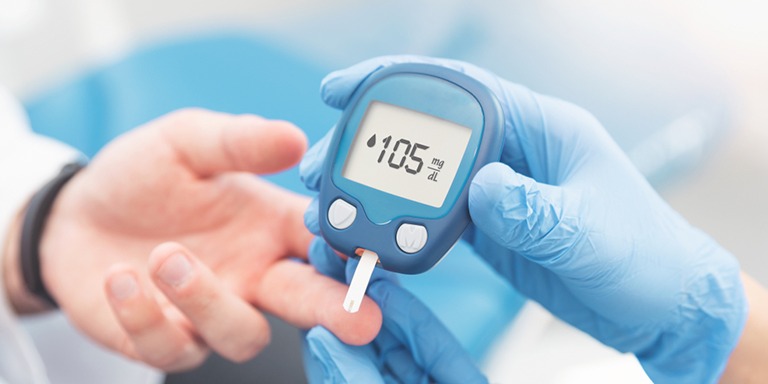Diabetes is a chronic disease that is associated with uncharacteristically high levels of glucose in the blood. Absence or inadequate production of insulin (produced by the pancreas) that lowers blood sugar level causes diabetes. Diabetes may also be caused by the body’s incapability to utilize the produced insulin.
Diabetes can cause obesity and hypertension. It reduces the level of HDL or good cholesterol in the blood and elevates the production of triglycerides which are harmful to one’s health. Moreover, it can instigate a long line of generations of diabetes patients in a family. If you feel that you have pre-diabetes or that you are showing diabetes symptoms early signs, you should consult a doctor immediately.
There are two widely known diabetes types:
– Type 1 diabetes or insulin-dependent diabetes or juvenile-onset diabetes
– Type 2 diabetes or non-insulin-dependent diabetes or adult-onset diabetes
In this article, we will be focusing on a few diabetes myths and facts.
9 common diabetes myths debunked:
- Diabetes Myth: People with diabetes can’t eat sugar.
Diabetes Fact: Sugar doesn’t cause diabetes.
Several factors contribute to diabetes development but sugar in itself does not cause diabetes. In type 1 diabetes, the body’s immune system is responsible for fighting off foreign microbes, like harmful viruses and bacteria malfunctions in this type. For people with type 1 diabetes, the immune system mistakes the body’s own healthy cells for foreign particles. The immune system attacks and destroys the insulin-producing beta cells in the pancreas which are responsible for producing insulin. Once these beta cells are damaged, the body is unable to produce insulin. In type 2, People with type 2 diabetes develop insulin resistance. The body still produces insulin, but it is not able to use it effectively. Even though researchers are not sure why some people develop insulin resistance while others don’t, but they believe that several lifestyle factors may contribute to this condition, including excess weight and long periods of inactivity.
- Diabetes Myth: If you’re overweight, you’ll automatically get type 2 diabetes.
Diabetes Truth: While excess weight or obesity may act as a factor for the development of diabetes, excess weight does not equal to diabetes.
Factors that contribute to diabetes:
- Family history:Heredity plays a vital role in this type. If parents or siblings have type 1 diabetes there is always a higher possibility of developing it themselves.
- Age: Age is a factor in this type.One can have Type 1 diabetes at any age. However, it’s most familiar among children and adolescents.
- Geography:It has been proved that the prevalence of type 1 diabetes increases the farther away you are from the equator.
- Genetics:The presence of some genes point to an increased risk of developing type 1 diabetes.
- Ethnicity: Being African-American, Hispanic or Latino American, American Indian, or Alaska Native can give you a higher risk of having diabetes.
- Diabetes Myth: Having diabetes means your body isn’t producing enough insulin.
Diabetes Truth: It depends on the type of diabetes you have.
For people with type 1 diabetes, the immune system mistakes the body’s own healthy cells for foreign particles. The immune system attacks and destroys the insulin-producing beta cells in the pancreas which are responsible for producing insulin. After these beta cells are damaged, the body is unable to produce insulin. In type 2, People with type 2 diabetes develop an insulin resistance. The body still produces insulin, but it is not able to use it effectively. Even though researchers are not sure why some people develop insulin resistance while others don’t, but they are of the opinion that several lifestyle factors may contribute to this condition, including excess weight and long periods of inactivity.
- Diabetes Myth: Insulin will harm you.
Diabetes Truth: Insulin is a lifesaver.
However, insulin might be difficult to manage for some people. Improved insulin helps blood sugar control with lesser risk of low or high blood sugar. Regularly testing your blood sugar levels is important and the only way to find out how your treatment is working for you.
- Diabetes Myth: People with diabetes can’t eat sweets.
Diabetes Truth: You can eat sweets as long as you stick to a proper diet.
Eat small portions and include other foods. This will help slow down digestion. Try to avoid highly sugared drinks and desserts since they are digested more quickly and can cause a quick spike in blood sugar level. When eaten in large quantities or by themselves, sweets can wreak havoc on your blood sugar.
- Diabetes Myth: Insulin causes weight gain.
Diabetes Truth: While some people may gain weight, insulin in itself does not cause weight gain.
When blood sugar is elevated, glucose is excreted through the urine, which eliminates some of the calories consumed. Once insulin treatment begins, those calories stay in the body instead of being excreted. if the patient consumes more calories than he or she burns, he or she will gain weight.
- Diabetes Myth: It’s not safe for people with diabetes to exercise.
Diabetes Truth: Physical exercise is important for diabetes.
It is important to exercise regularly and follow a diet when you have diabetes. Even a small reduction in weight and a healthier food habit can make a huge difference
- Diabetes Myth: I don’t need to test my blood sugar, because I can tell when it’s high.
Diabetes Truth: You need to check your blood sugar level regularly because contrary to the belief, you cannot tell when it is high
- Diabetes Myth: People with diabetes can’t get tattoos.
Diabetes Truth: Many choose to get medical alert tattoos
Going for a tattoo could be risky if your diabetes isn’t under control. This is because it might not heal properly.
Conclusion:
In this article, we debunked a few diabetes myths and revealed the facts. Diabetes may not be preventable but maintaining a healthy diet and lifestyle can improve the condition.

